Sea cargo from UAE
Get your goods shipped anywhere in the world with ease and confidence, thanks to Sae Cargo services from UAE (Dubai, Sharjah, Abu Dhabi)

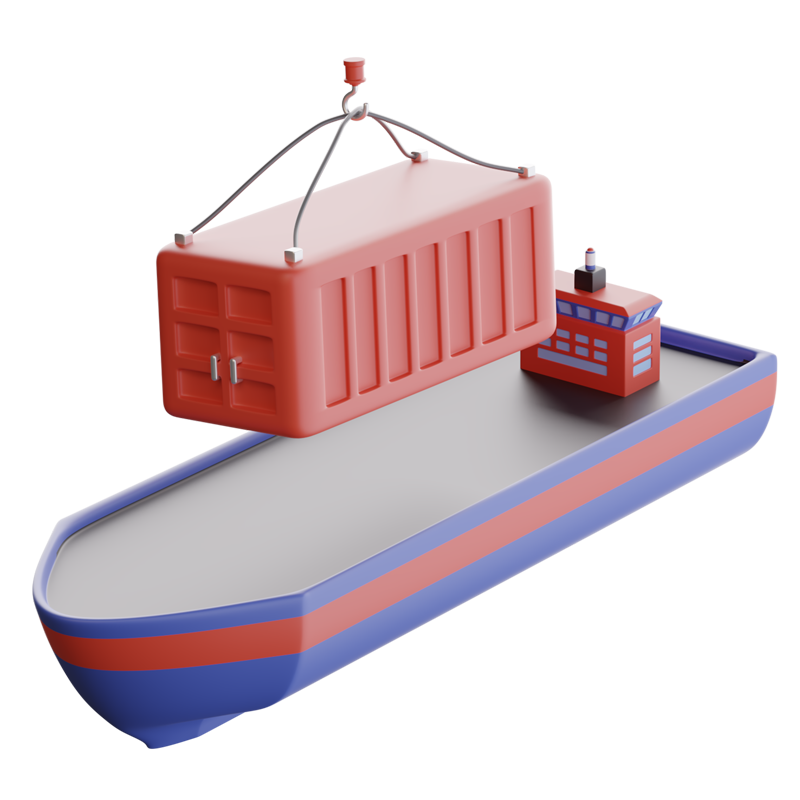

About Sea cargo service
Sea cargo service is a popular mode of transportation for goods and products from the United Arab Emirates (UAE) to destinations around the world. The UAE is a hub for international trade, with the Port of Dubai serving as one of the busiest ports in the world. The country has established itself as a major player in the global economy, making sea cargo an essential component of its logistics infrastructure. Shipping containers loaded with goods are transported on cargo ships to ports around the world, allowing businesses to easily send and receive products from one country to another.
Sea cargo services from the UAE to destinations worldwide offer a range of benefits, including cost-effectiveness, reliability, and security. Companies can save money on shipping costs compared to air freight, as sea cargo is more affordable for large shipments. The ships are equipped with state-of-the-art security systems to ensure the safety of the goods during transit. Additionally, sea cargo allows for the shipment of a variety of goods, from raw materials and finished products to oversized equipment. This versatility makes sea cargo a preferred option for many businesses, regardless of their location or the destination country. Sea cargo services are available to countries all around the world, including Europe, Asia, Africa, and the Americas.
- FCL and LCL ocean freight from UAE
- Delivery in 10–35 business days to your country
- Door to Door Sea freight from UAE to your country
- We offer competitive Sea freight costs from UAE
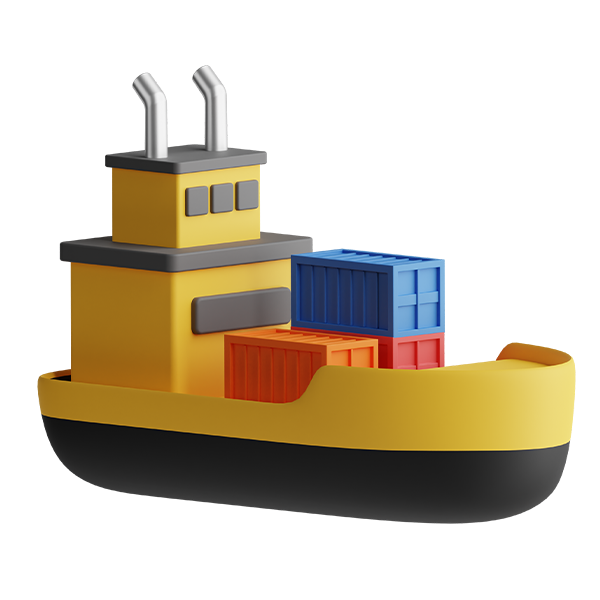
What is Sea Freight from UAE?
Sea freight from the United Arab Emirates (UAE) refers to the transportation of goods and products by sea from the UAE to other destinations around the world. The UAE is a major hub for international trade, with the Port of Dubai serving as one of the busiest ports in the world. This makes the country an ideal starting point for sea freight services, as it provides easy access to markets in Europe, Asia, Africa, and the Americas.
The transportation of goods by sea is a cost-effective and reliable option, especially for large shipments. Companies can send containers filled with goods on cargo ships to various ports around the world, making it easier to import and export products.
Sea freight from the UAE offers several benefits, including cost-effectiveness, reliability, and security. Shipping by sea is more affordable than air freight, making it an attractive option for companies looking to reduce costs. The ships themselves are equipped with state-of-the-art security systems, ensuring that the goods are safe during transit. Additionally, sea freight allows for the shipment of a wide variety of goods, from raw materials and finished products to oversized equipment.
This versatility makes sea freight an ideal solution for companies of all sizes and industries, regardless of their location or destination country. Overall, sea freight from the UAE is a crucial component of the country’s logistics infrastructure, allowing businesses to connect with markets all around the world.
Why is Sea cargo service from Dubai so important?
Sea cargo service from Dubai is important because it plays a crucial role in the city’s economy. Dubai is a major hub for international trade and commerce, and the Port of Dubai is one of the busiest ports in the world. This makes the city an ideal starting point for sea cargo services, as it provides easy access to markets in Europe, Asia, Africa, and the Americas.
The transportation of goods by sea is a cost-effective and reliable option, especially for large shipments, and it allows businesses to easily import and export products from one country to another.
Another reason why sea cargo service from Dubai is so important is because it supports the growth and development of industries across the country. The versatility of sea freight, which allows for the shipment of a wide range of goods, makes it an ideal solution for companies of all sizes and industries, regardless of their location or destination country.
The cost-effectiveness and reliability of sea freight also make it an attractive option for businesses looking to reduce costs and ensure the timely delivery of their products. The security measures in place during transit also ensure the safety of the goods, making sea cargo service from Dubai a reliable and secure mode of transportation for businesses. Overall, sea cargo service from Dubai is a crucial component of the country’s logistics infrastructure, helping to support the growth and development of industries both locally and globally.
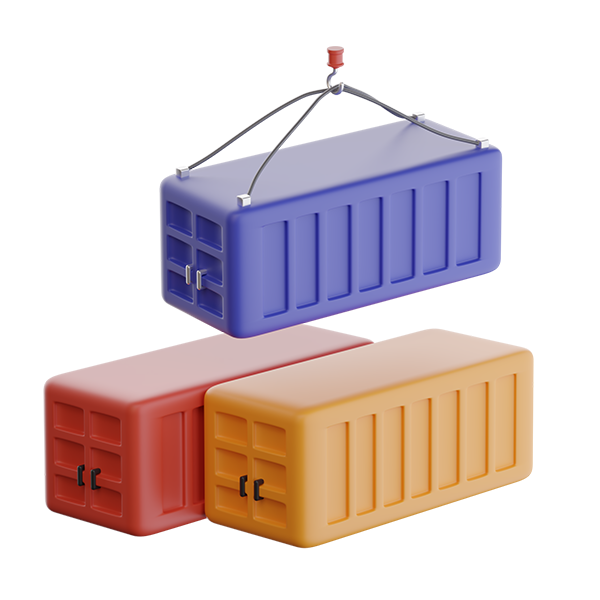
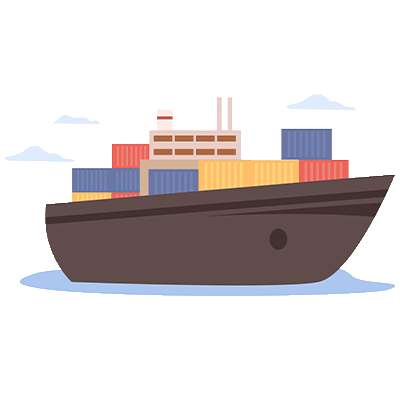
Why choose Sea cargo service for shipping from UAE?
There are several reasons why companies choose sea cargo service for shipping from the United Arab Emirates (UAE):
Cost-effectiveness: Shipping by sea is more affordable than air freight, making it an attractive option for companies looking to reduce costs. The larger the shipment, the more cost-effective sea freight becomes.
Reliability: Sea cargo services are a reliable mode of transportation for goods, as ships operate on schedules and have a low likelihood of delays compared to air freight.
Versatility: Sea freight allows for the shipment of a wide variety of goods, from raw materials and finished products to oversized equipment. This versatility makes sea freight an ideal solution for companies of all sizes and industries, regardless of their location or destination country.
Security: The ships used for sea cargo services are equipped with state-of-the-art security systems to ensure the safety of the goods during transit.
Convenient transit: Dubai is a major hub for international trade and commerce, with the Port of Dubai serving as one of the busiest ports in the world. This makes the city an ideal starting point for sea cargo services, as it provides easy access to markets in Europe, Asia, Africa, and the Americas.
Overall, sea cargo service is a cost-effective, reliable, secure, and versatile mode of transportation for companies looking to ship goods from the UAE to other destinations around the world.
How to Make an Sea Freight Order from UAE?
The process for making a sea freight order from the United Arab Emirates (UAE) typically involves the following steps:
Choose a shipping company
Research and compare different shipping companies to find one that offers sea freight services and meets your needs. Consider factors such as cost, transit time, and the company’s reputation.
Get a quote
Contact the shipping company to request a quote for your shipment. Provide details about the size, weight, and type of goods you need to ship, as well as the origin and destination of your shipment.
Prepare your shipment
Once you have received a quote and have agreed to the terms and conditions, you can prepare your shipment for transport. This may include packing and labeling the goods, as well as providing any necessary documentation.
Book your shipment
Book your shipment with the shipping company by providing all necessary information, including the shipment details and payment information.
Arrange for pickup
Arrange for the shipping company to pick up the goods from your location. Be sure to confirm the pickup time and location with the shipping company.
Track your shipment
The shipping company will provide you with a tracking number, allowing you to track the progress of your shipment from the UAE to its destination.
Receive your shipment
When your shipment arrives at its destination, the shipping company will unload the goods and deliver them to your specified location.
By following these steps, you can make a sea freight order from the UAE and ensure that your shipment is transported safely and efficiently to its destination.
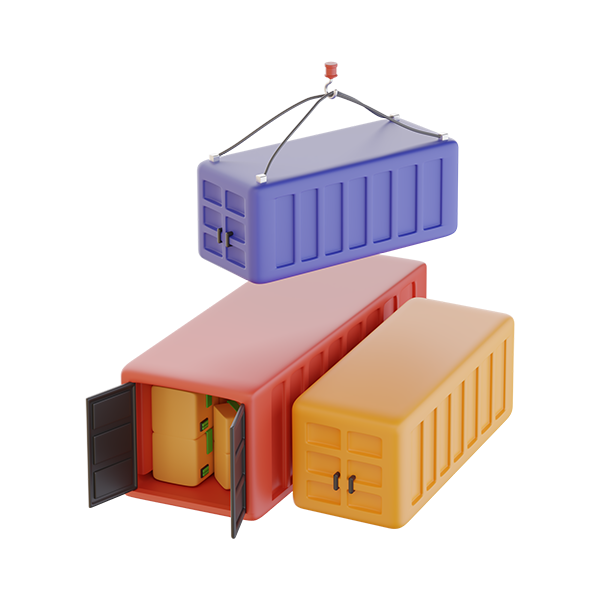
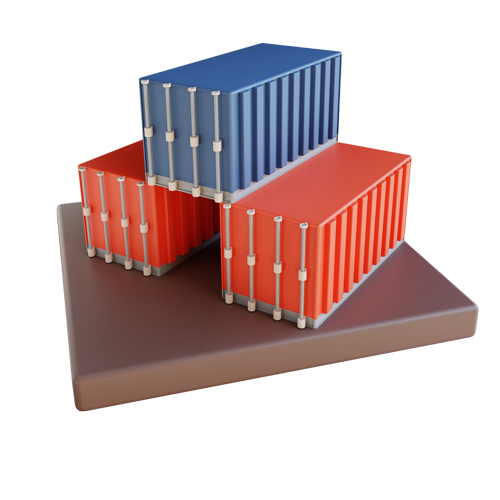
What are the key benefits of using Sea freight?
Sea freight is a cost-effective and reliable method of transporting goods by ship. Shipping by sea is generally cheaper compared to other modes of transportation such as air freight, making it an attractive option for large shipments or for items that are not time-sensitive. Additionally, sea freight ships can carry massive amounts of goods, making it the ideal option for large-scale operations. Sea freight services also offer a range of options, such as full container loads (FCL) or less than container loads (LCL), allowing customers to choose the service that best fits their needs.
Another benefit of sea freight is its global reach. Sea freight ships can reach virtually any part of the world, providing a convenient and accessible way to transport goods internationally. Shipping by sea has a long history of reliability and is considered a safe and secure method of transportation.
Furthermore, shipping by sea has a lower carbon footprint compared to air freight, making it a more sustainable option for those concerned with the environment. Sea freight services often provide a door-to-door service, meaning that the goods are picked up from the sender’s location and delivered to the recipient’s door, reducing the need for additional handling and transportation. These benefits make sea freight an attractive option for many businesses and individuals looking to transport goods.
Top 7 Sea freight Advantages
Sea freight offers cost-effectiveness, large capacity, flexible options such as FCL/LCL, reliability, eco-friendliness with low carbon footprint, global reach, and door-to-door service for convenient delivery.

Cost-effective
Sea freight is generally cheaper compared to other modes of transportation such as air freight, making it an attractive option for large shipments or for items that are not time-sensitive.

High Capacity
Sea freight ships can carry massive amounts of goods, making it the ideal option for large-scale operations.

Flexibility
Sea freight services offer a range of options, such as full container loads (FCL) or less than container loads (LCL), allowing customers to choose the service that best fits their needs.

Reliable
Sea freight has a long history of reliability and is considered a safe and secure method of transportation.

Eco-friendly
Shipping by sea has a lower carbon footprint compared to air freight, making it a more sustainable option for those concerned with the environment.

Global Reach
freight ships can reach virtually any part of the world, providing a convenient and accessible way to transport goods internationally.

Door-to-door service
Sea freight services often provide a door-to-door service, meaning that the goods are picked up from the sender's location and delivered to the recipient's door, reducing the need for additional handling and transportation.
Terms for Sea Freight
Sea freight terms refer to the commonly used terms and expressions in the shipping industry for ocean transportation of cargo. These include terms such as FCL (full container load), LCL (less than container load), bill of lading, port of loading, port of discharge, and carrier.

FCL (Full Container Load)
This refers to the shipment of goods that fill an entire container, either 20ft or 40ft in length. The entire container is dedicated to one shipment, making it a cost-effective option for large shipments.

LCL (Less than Container Load)
International commercial terms that define the responsibilities and obligations of the buyer and seller in a global trade transaction

NVOCC (Non-Vessel Operating Common Carrier)
his refers to the shipment of goods that do not fill an entire container. The goods are consolidated with other shipments and shipped together in the same container, making it a cost-effective option for smaller shipments.

Bill of Lading
This is a legal document that serves as a receipt for goods shipped by sea freight. It is also a contract of carriage between the shipper and the carrier, outlining the terms and conditions of the shipment.

TEU (Twenty-foot Equivalent Unit)
This is a standard measure of container capacity, equal to one 20ft container.

Breakbulk cargo
This refers to cargo that cannot be loaded into a container and must be loaded and unloaded individually, such as large machinery or oversized items

Transshipment
This refers to the transfer of goods from one vessel to another during a sea freight journey, often for the purpose of reaching a final destination not served by the original vessel.

CFS (Container Freight Station)
This is a facility where containers are loaded, unloaded, and consolidated. CFSs play an important role in the sea freight process, ensuring that containers are properly loaded and secured before being shipped.
Top 3 Most Important Sea Ports in UAE
The United Arab Emirates (UAE) is one of the world’s largest trading nations and has some of the busiest sea ports in the world. The UAE’s strategic location, coupled with its modern infrastructure, makes it a hub for global trade, making it a key player in the shipping industry. In this article, we will take a look at the top 3 most important sea ports in the UAE and what makes them significant.
The first port on our list is the Port of Jebel Ali, located in Dubai. It is the largest man-made port in the world and handles a significant portion of the country’s trade. The port has numerous berths, state-of-the-art facilities, and a dedicated free zone, making it a popular choice for international shipping companies. The second port on our list is the Port of Fujairah, located on the east coast of the UAE. It is the largest oil terminal in the region and handles a significant amount of the country’s oil exports. The port has several deep-water berths and is equipped to handle very large crude carriers, making it a crucial part of the UAE’s energy industry. Finally, the Port of Sharjah, located in the city of the same name, is the third largest port in the UAE and handles a wide range of cargo, including containerized and general cargo.


Port of Jebel Ali
The Port of Jebel Ali is a man-made port located in the Emirate of Dubai, United Arab Emirates (UAE). It is one of the largest ports in the world and serves as a major hub for sea freight and shipping in the region. The port was opened in 1979 and has since undergone multiple expansions to become one of the largest and most advanced ports in the world.
The Port of Jebel Ali is important for sea freight services from the UAE as it provides a strategic location for shipping and distribution of goods to various destinations around the world. It has a strategic location at the crossroads of global shipping lanes, making it an ideal location for transshipment, distribution and storage of cargo. The port is equipped with state-of-the-art infrastructure and facilities, including modern terminals, warehouses, and yards, making it an efficient and cost-effective option for shipping and logistics companies.
The Port of Jebel Ali provides sea shipping services to many countries around the world, including Europe, Asia, the Americas, and Africa. It has direct shipping lines to major ports in Europe, Asia, and the Americas, and serves as a hub for cargo moving to and from the region. The port also has a dedicated Free Zone, which offers tax and duty-free facilities for import and export of goods, making it an attractive destination for foreign investors and businesses.
In conclusion, the Port of Jebel Ali plays a significant role in the sea freight and shipping industry in the UAE and serves as a vital link in the global supply chain, connecting countries around the world.

Port of Abu Dhabi
The Port of Abu Dhabi is a deep-water port located in the Emirate of Abu Dhabi, United Arab Emirates (UAE). It is one of the largest ports in the UAE and serves as a major hub for sea freight and shipping in the region. The port was opened in 1972 and has since undergone multiple expansions to become one of the most modern and advanced ports in the region.
The Port of Abu Dhabi is important for sea freight services from the UAE as it provides a strategic location for shipping and distribution of goods to various destinations around the world. It has a strategic location at the crossroads of global shipping lanes, making it an ideal location for transshipment, distribution and storage of cargo. The port is equipped with state-of-the-art infrastructure and facilities, including modern terminals, warehouses, and yards, making it an efficient and cost-effective option for shipping and logistics companies.
The Port of Abu Dhabi provides sea shipping services to many countries around the world, including Europe, Asia, the Americas, and Africa. It has direct shipping lines to major ports in Europe, Asia, and the Americas, and serves as a hub for cargo moving to and from the region. The port also has a dedicated Free Zone, which offers tax and duty-free facilities for import and export of goods, making it an attractive destination for foreign investors and businesses.
In conclusion, the Port of Abu Dhabi plays a significant role in the sea freight and shipping industry in the UAE and serves as a vital link in the global supply chain, connecting countries around the world.

Port of Hamriyah
The Port of Hamriyah is a deep-water port located in the Emirate of Sharjah, United Arab Emirates (UAE). It is one of the largest ports in the UAE and serves as a major hub for sea freight and shipping in the region. The port was established in the late 1990s and has since undergone multiple expansions to become one of the most modern and advanced ports in the region.
The Port of Hamriyah is important for sea freight services from the UAE as it provides a strategic location for shipping and distribution of goods to various destinations around the world. It has a strategic location at the crossroads of global shipping lanes, making it an ideal location for transshipment, distribution, and storage of cargo. The port is equipped with state-of-the-art infrastructure and facilities, including modern terminals, warehouses, and yards, making it an efficient and cost-effective option for shipping and logistics companies.
The Port of Hamriyah provides sea shipping services to many countries around the world, including Europe, Asia, the Americas, and Africa. It has direct shipping lines to major ports in Europe, Asia, and the Americas, and serves as a hub for cargo moving to and from the region. The port also has a dedicated Free Zone, which offers tax and duty-free facilities for import and export of goods, making it an attractive destination for foreign investors and businesses.

Port of Sharjah
The Port of Sharjah is a deep-water port located in the Emirate of Sharjah, United Arab Emirates (UAE). It is one of the largest ports in the UAE and serves as a major hub for sea freight and shipping in the region. The port was established in the early 20th century and has since undergone multiple expansions to become one of the most modern and advanced ports in the region.
The Port of Sharjah is important for sea freight services from the UAE as it provides a strategic location for shipping and distribution of goods to various destinations around the world. It has a strategic location at the crossroads of global shipping lanes, making it an ideal location for transshipment, distribution, and storage of cargo. The port is equipped with state-of-the-art infrastructure and facilities, including modern terminals, warehouses, and yards, making it an efficient and cost-effective option for shipping and logistics companies.
The Port of Sharjah provides sea shipping services to many countries around the world, including Europe, Asia, the Americas, and Africa. It has direct shipping lines to major ports in Europe, Asia, and the Americas, and serves as a hub for cargo moving to and from the region. The port also has a dedicated Free Zone, which offers tax and duty-free facilities for import and export of goods, making it an attractive destination for foreign investors and businesses.
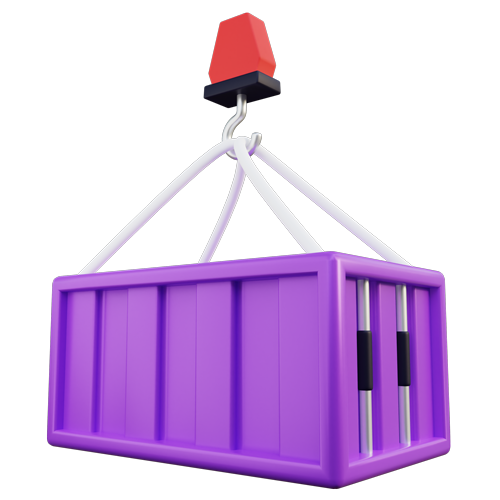
Top 4 Sea shipping line in UAE
These shipping lines provide efficient, reliable, and cost-effective transportation of goods and materials, allowing businesses to reach global markets and meet the demands of their customers. Their modern and well-equipped fleets, supported by advanced technology and experienced personnel, ensure that cargo is delivered safely and on-time, every time.
Furthermore, the use of sea container shipping lines is important as it provides a critical link in the global supply chain, enabling the smooth flow of goods between countries and continents. With the UAE being a major hub for trade and commerce in the Middle East, it is essential that businesses have access to high-quality sea container shipping services to ensure their competitiveness and success in the global market. By choosing to use a reputable sea container shipping line, businesses can rest assured that their cargo is in good hands and that they will receive a first-class shipping service, no matter their destination.

MSC
Mediterranean Shipping Company (MSC) is one of the largest shipping companies in the world, with a fleet of over 500 vessels operating globally. The company was founded in 1970 and has its headquarters in Geneva, Switzerland. MSC is known for its extensive global network, providing shipping and logistics services to businesses and consumers across the world.
In the United Arab Emirates, MSC offers a wide range of services, including container shipping, cargo transportation, and supply chain solutions. The company operates in major ports in the UAE, including Dubai and Abu Dhabi, providing customers with fast and reliable shipping options. Additionally, MSC’s extensive network and partnerships with local suppliers ensure that businesses can access a wide range of products and services, making it an essential partner for companies looking to grow their operations in the region.

COSCO
COSCO Shipping Company is a multinational transportation company based in China. It was established in 1961 and has since grown to become one of the largest shipping companies in the world. The company provides a range of shipping services, including container shipping, bulk cargo shipping, and transportation of oil and gas.
In the United Arab Emirates, COSCO Shipping offers a wide range of shipping services, including container shipping, bulk cargo shipping, and transportation of oil and gas. The company has a strong presence in the region, with several offices and ports, including Jebel Ali Port in Dubai. In addition to these services, COSCO Shipping also offers logistics solutions, such as warehousing and distribution, to help customers manage their supply chains more efficiently. With its strong network and commitment to providing high-quality services, COSCO Shipping is well-positioned to meet the shipping and transportation needs of customers in the UAE and around the world.

Evergreen Line
Evergreen Line is a leading global shipping company based in Taiwan. Founded in 1968, the company has a long history of providing reliable and efficient transportation services to customers around the world. Evergreen Line operates a large fleet of container ships and provides a range of shipping services, including container shipping, reefer shipping, and project cargo services.
In the United Arab Emirates, Evergreen Line offers a range of shipping services, including container shipping and logistics solutions. The company has a strong presence in the region, with several offices and partnerships with local companies. In addition to its shipping services, Evergreen Line also offers value-added services, such as customs clearance and document preparation, to help customers streamline their supply chains.

Maersk
Mediterranean Shipping Company (MSC) is one of the largest shipping companies in the world, with a fleet of over 500 vessels operating globally. The company was founded in 1970 and has its headquarters in Geneva, Switzerland. MSC is known for its extensive global network, providing shipping and logistics services to businesses and consumers across the world.
In the United Arab Emirates, MSC offers a wide range of services, including container shipping, cargo transportation, and supply chain solutions. The company operates in major ports in the UAE, including Dubai and Abu Dhabi, providing customers with fast and reliable shipping options. Additionally, MSC’s extensive network and partnerships with local suppliers ensure that businesses can access a wide range of products and services, making it an essential partner for companies looking to grow their operations in the region.
Incoterms for Sea Cargo Services
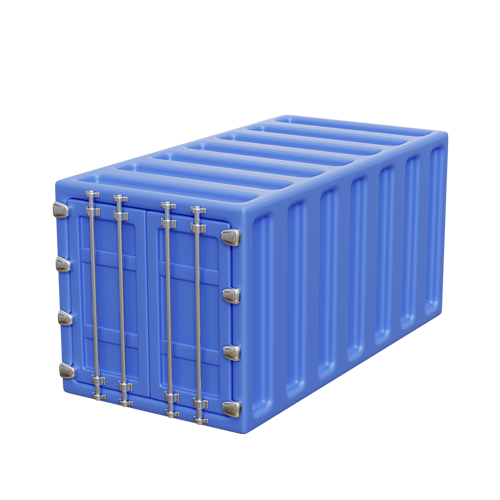
Top 5 Incoterms for Sea cargo Service
The Top 6 Incoterms for Sea cargo service are FOB, CIF, C&F, EXW, DAP, and DDP. These terms define the responsibilities and obligations of both the buyer and the seller in a sea cargo transaction, including the delivery of goods, transport, and insurance. Understanding these terms is crucial for a smooth international trade.

CIF (Cost, Insurance and Freight)
CIF stands for Cost, Insurance, and Freight. It is an Incoterms (International Commercial Terms) rule that is commonly used in international trade to define the responsibilities of the buyer and the seller when it comes to the transportation of goods.
In a CIF agreement, the seller is responsible for the cost of the goods, the marine insurance against the risk of loss or damage during ocean transport, and the freight charges for shipping the goods from the port of origin to the port of destination. The buyer, on the other hand, is responsible for any additional costs incurred after the goods have been delivered to the port of destination, including customs clearance and inland transportation.
CIF can be useful in ocean freight services from the UAE to other countries because it allows for a clear division of responsibilities between the buyer and the seller. The seller takes care of the cost, insurance, and freight charges up to the port of destination, and the buyer takes care of any additional costs. This helps to reduce the risk for both parties and ensures that the goods are delivered in a timely and efficient manner.
In summary, CIF is a useful trade term for ocean freight services because it helps to define the responsibilities of the buyer and the seller and reduces the risk of loss or damage to the goods during transportation.

CPT (Carriage paid to)
CPT stands for “Carriage Paid To.” It is an Incoterms (International Commercial Terms) rule that is commonly used in international trade to define the responsibilities of the buyer and the seller when it comes to the transportation of goods.
In a CPT agreement, the seller is responsible for the cost of the goods and the freight charges for shipping the goods from the port of origin to the port of destination. The buyer is responsible for the marine insurance against the risk of loss or damage during ocean transport.
CPT can be useful in ocean freight services from the UAE to other countries because it clearly defines the responsibilities of each party. The seller takes care of the cost of the goods and the freight charges, and the buyer takes care of the marine insurance. This helps to reduce the risk for both parties and ensures that the goods are delivered in a timely and efficient manner.
In summary, CPT is a useful trade term for ocean freight services because it helps to define the responsibilities of the buyer and the seller and reduces the risk of loss or damage to the goods during transportation.

FOB (Free on Board)
FOB stands for “Free on Board.” It is an Incoterms (International Commercial Terms) rule that is commonly used in international trade to define the responsibilities of the buyer and the seller when it comes to the transportation of goods.
In a FOB agreement, the seller is responsible for the cost of the goods and the freight charges up to the point where the goods are loaded onto the shipping vessel at the port of origin. The buyer is responsible for the marine insurance and all other costs incurred after the goods have been loaded onto the vessel, including the cost of transportation to the port of destination.
FOB can be useful in ocean freight services from the UAE to other countries because it clearly defines the responsibilities of each party. The seller takes care of the cost of the goods and the freight charges up to the point of loading, and the buyer takes care of the marine insurance and all other costs thereafter. This helps to reduce the risk for both parties and ensures that the goods are delivered in a timely and efficient manner.
In summary, FOB is a useful trade term for ocean freight services because it helps to define the responsibilities of the buyer and the seller and reduces the risk of loss or damage to the goods during transportation.

DDP (Delivered Duty Paid)
DDP stands for “Delivered Duty Paid.” It is an Incoterms (International Commercial Terms) rule that is commonly used in international trade to define the responsibilities of the buyer and the seller when it comes to the transportation of goods.
In a DDP agreement, the seller is responsible for all costs associated with the delivery of the goods to the final destination, including the cost of the goods, freight charges, marine insurance, customs duties and taxes, and any other fees or charges that may be incurred during transportation. The buyer is not responsible for any costs beyond the purchase price of the goods.
DDP can be useful in ocean freight services from the UAE to other countries because it places the burden of all transportation and delivery costs on the seller. This can be especially advantageous for the buyer, who does not have to worry about paying additional fees or charges once the goods have been delivered.
In summary, DDP is a useful trade term for ocean freight services because it helps to reduce the risk and complexity for the buyer by placing the responsibility for all transportation and delivery costs on the seller.

FCA (Free Carrier)
FCA stands for “Free Carrier.” It is an Incoterms (International Commercial Terms) rule that is commonly used in international trade to define the responsibilities of the buyer and the seller when it comes to the transportation of goods.
In a FCA agreement, the seller is responsible for delivering the goods to a specified place, such as a carrier’s terminal or the buyer’s premises, and making them available to the buyer. The buyer is responsible for the cost of transportation from that point forward, including the cost of marine insurance and any other fees or charges that may be incurred during transportation.
FCA can be useful in ocean freight services from the UAE to other countries because it clearly defines the responsibilities of each party. The seller takes care of delivering the goods to a specified place, and the buyer takes care of the cost of transportation from that point forward. This helps to reduce the risk for both parties and ensures that the goods are delivered in a timely and efficient manner.
In summary, FCA is a useful trade term for ocean freight services because it helps to define the responsibilities of the buyer and the seller and reduces the risk of loss or damage to the goods during transportation.
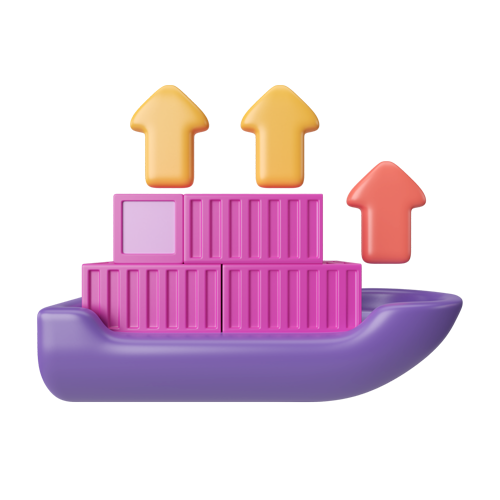
How to calculate Sea cargo Cost from UAE?
Calculating the cost of sea cargo from the UAE involves several factors, including the weight or volume of the goods, the distance of the shipment, the type of shipping container used, and the value of the goods being shipped. Some of the common costs that are associated with sea cargo from the UAE include the cost of the shipping container, the cost of marine insurance, and the cost of customs duties and taxes that may be applicable in the destination country.
To accurately calculate the cost of sea cargo from the UAE, it is best to consult with a freight forwarder or shipping agent who specializes in international trade and has experience with sea freight. They can provide an estimate based on the specific details of the shipment, including the weight or volume of the goods, the distance of the shipment, the type of shipping container used, and the value of the goods being shipped. They can also provide information on any other costs that may be associated with the shipment, such as customs duties and taxes, and help to ensure that the shipment is compliant with all international regulations and standards.
What is CBM in sea shipping service?
CBM stands for “Cubic Meter,” and it is a unit of measurement used in the shipping industry to calculate the volume of a shipment. In sea shipping, CBM is used to determine the amount of space that a shipment will occupy in a container and to determine the cost of the shipment based on the volume of goods being transported.
CBM is important in sea shipping because it allows shippers and freight forwarders to accurately calculate the cost of a shipment based on the volume of goods being transported. By knowing the CBM of a shipment, shippers and freight forwarders can determine the most cost-effective shipping option and ensure that the shipment is packaged and loaded efficiently to maximize the use of space in the shipping container. Additionally, accurate CBM calculations can help to minimize the risk of overcharging or undercharging for a shipment, as well as reduce the risk of damage to the goods during transportation.
In summary, CBM is an important measurement in sea shipping because it helps to accurately calculate the cost of a shipment based on the volume of goods being transported, and it allows shippers and freight forwarders to optimize the use of space in the shipping container, minimize the risk of overcharging or undercharging, and reduce the risk of damage to the goods during transportation.

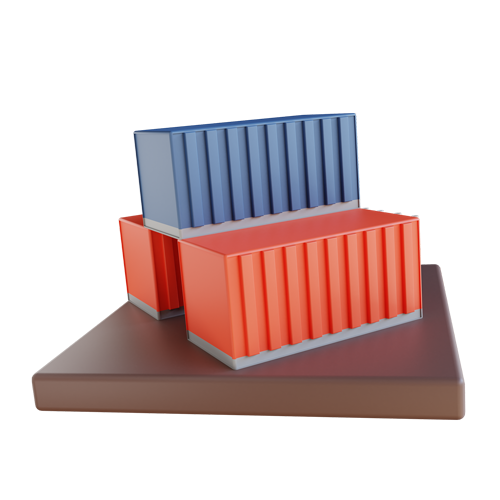
What is Volumetric weight in Sea shipping service?
Volumetric weight, also known as dimensional weight, is a term used in the ocean freight industry to determine the chargeable weight of a shipment. Volumetric weight is calculated by taking the volume of a shipment (in cubic meters) and dividing it by a volumetric weight factor, which is set by the shipping carrier. The resulting figure is compared to the actual weight of the shipment, and the greater of the two is used to determine the chargeable weight of the shipment.
Volumetric weight is important in the ocean freight industry because it ensures that shippers are charged based on the amount of space that their shipment occupies in a shipping container, rather than just the actual weight of the goods. This is important because it helps to ensure that the shipping carrier is able to fill their containers efficiently and to minimize the amount of unused space in the container.
For example, a shipment that has a low actual weight but a large volume may be charged a higher fee based on its volumetric weight, as it is taking up a large amount of space in the shipping container. On the other hand, a shipment with a high actual weight but a small volume may be charged a lower fee based on its volumetric weight.
In summary, volumetric weight is an important concept in the ocean freight industry as it ensures that shippers are charged based on the amount of space that their shipment occupies in a shipping container, rather than just the actual weight of the goods. This helps to optimize the use of space in the shipping container and ensures that shipping carriers are able to fill their containers efficiently.
5 Types of containers for shipping from UAE
There are several types of containers commonly used in sea shipping services, including:
Dry Containers: These containers are used to transport non-perishable goods, such as machinery, electronics, and clothing. They come in standard sizes of 20 feet and 40 feet and are typically made of steel.
Reefer Containers: These containers are equipped with refrigeration units and are used to transport perishable goods, such as fruits, vegetables, and dairy products. They come in standard sizes of 20 feet and 40 feet and are typically made of steel.
Open Top Containers: These containers are similar to dry containers, but they have a removable roof that allows for easy loading and unloading of over-sized cargo.
Flat Rack Containers: These containers are used to transport heavy or bulky cargo, such as machinery, construction materials, and vehicles. They have no walls or roof, making them ideal for oversized cargo that cannot be loaded through the doors of a standard container.
Tank Containers: These containers are used to transport liquids, such as chemicals, edible oils, and wine. They are equipped with an internal tank and are designed to maintain the quality and integrity of the liquid being transported.
In conclusion, these are some of the most common types of containers used in sea shipping services. The type of container used for a shipment will depend on the nature of the goods being transported and the size and weight of the shipment.
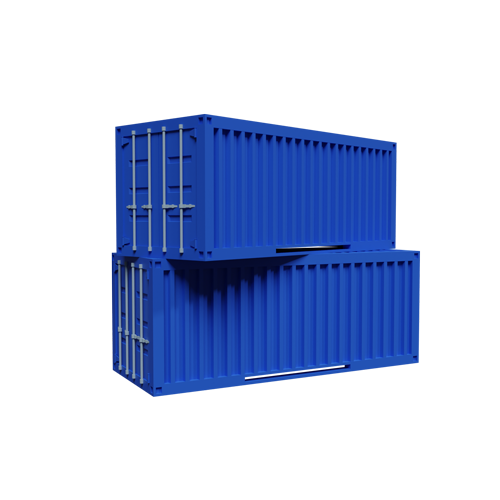

General cargo VS DGR Goods
General cargo and Dangerous Goods (DGR) are two different types of goods that are shipped via ocean freight service. Understanding the differences between these two types of goods is important for ensuring the safe and efficient transportation of goods from UAE to other countries.
General cargo refers to any non-dangerous goods that are shipped via ocean freight. These goods are typically packaged and loaded into standard shipping containers and can include items such as machinery, clothing, electronics, and food items.
On the other hand, Dangerous Goods (DGR) are items that pose a potential hazard to people, property, or the environment during transportation. Examples of dangerous goods include chemicals, hazardous waste, explosives, and flammable liquids. The transportation of dangerous goods is subject to specific regulations and guidelines to ensure the safety of the goods, the crew, and the environment.
In terms of ocean freight service from UAE, general cargo is typically easier to transport and handle as it does not require special handling procedures or additional documentation. In contrast, the transportation of dangerous goods requires special training and certification for the handling and shipping of these goods, as well as specific packaging and labeling requirements.
In conclusion, general cargo and Dangerous Goods (DGR) are two different types of goods that are shipped via ocean freight service from UAE. Understanding the differences between these two types of goods is important for ensuring the safe and efficient transportation of goods, with DGR requiring additional regulations and handling procedures to ensure the safety of the goods, the crew, and the environment.
Examples of special cargo include:
- Hazardous materials (e.g. chemicals, flammable liquids)
- Live animals (e.g. horses, dogs)
- Perishable goods (e.g. fresh flowers, fruits and vegetables)
- Valuable goods (e.g. gold, diamonds)
- Fragile goods (e.g. glass items, artwork)
- Oversized cargo (e.g. machinery, vehicles)
Should I book my Sea shipment myself, or will my shipper do it?
The decision on whether to book your sea shipment from UAE to another country yourself or have your shipper do it depends on several factors, including your level of experience with international shipping, the size and complexity of the shipment, and your company’s needs and resources. Here are some factors to consider:
Experience with international shipping: If you have experience with international shipping and a good understanding of the regulations, documentation, and procedures involved, you may feel confident booking your shipment yourself. On the other hand, if you are new to international shipping, it may be wise to rely on the expertise of your shipper to ensure a smooth and successful shipment.
Size and complexity of the shipment: If your shipment is small and straightforward, booking it yourself may be an option. However, if your shipment is large or complex, it may be more beneficial to have your shipper handle the booking process to ensure that all the details are taken care of properly.
Company needs and resources: If your company has the resources and staff to handle the logistics of booking and managing a shipment, it may be more cost-effective to do it yourself. However, if you do not have the necessary resources, it may be more efficient to have your shipper handle the booking process.
Shipping rates: Your shipper may be able to negotiate better shipping rates with the carriers on your behalf, as they have experience and established relationships with the carriers. If you book your shipment yourself, you may be able to find competitive rates, but you may also have to spend more time researching and negotiating with carriers.
In conclusion, whether you book your sea shipment from UAE to another country yourself or have your shipper do it depends on several factors, including your level of experience with international shipping, the size and complexity of the shipment, and your company’s needs and resources. Consider your individual needs and resources when making this decision.
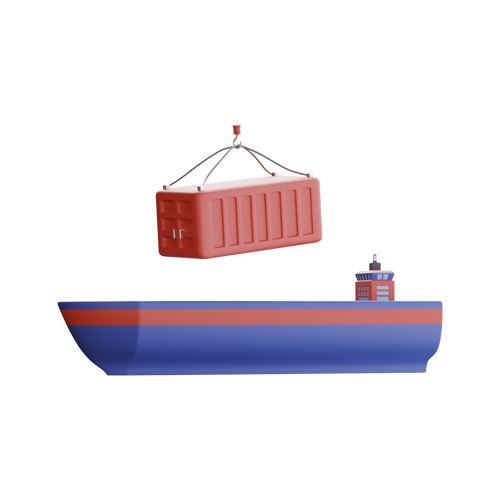

Air cargo vs. Sea cargo
The choice between air cargo and sea cargo for shipping heavy cargo from UAE depends on several factors, including delivery time, cost, and the nature of the cargo.
Air cargo is generally faster and more expensive than sea cargo. If you need your heavy cargo delivered quickly, air cargo is the best option. This method of shipping is also ideal for high-value or perishable goods that require a faster delivery time. However, air cargo is generally more expensive than sea cargo and is also subject to weight and size restrictions.
Sea cargo is a more cost-effective option for shipping heavy cargo, especially for large shipments. The cost of shipping per unit of weight is lower for sea cargo, and the larger size of the vessels allows for larger shipments. However, sea cargo is generally slower than air cargo, with transit times ranging from several days to several weeks, depending on the destination.
When deciding between air cargo and sea cargo for shipping heavy cargo from UAE, it is important to consider the delivery time, cost, and the nature of the cargo. If you need your heavy cargo delivered quickly, air cargo is the best option. However, if cost is a major concern and delivery time is not as critical, sea cargo is the more cost-effective option.
In conclusion, the choice between air cargo and sea cargo for shipping heavy cargo from UAE depends on several factors, including delivery time, cost, and the nature of the cargo. Consider your specific needs and requirements when deciding which method is best for your shipment.
Insurance for Sea freight from UAE
Insurance is an important aspect of sea freight shipments from UAE as it provides protection against any potential losses or damages that may occur during the transportation of goods. Here are some key points to consider when obtaining insurance for your sea freight shipment from UAE:
Types of coverage: There are several types of insurance coverage available for sea freight shipments, including All Risks coverage, which provides comprehensive protection for a wide range of risks, and Named Perils coverage, which only covers specific risks listed in the policy.
Coverage amount: When obtaining insurance for your shipment, it is important to consider the value of the goods and choose an appropriate coverage amount. It is generally recommended to choose a coverage amount that is equal to the full value of the goods being shipped.
Deductible: A deductible is the amount of the loss that is not covered by the insurance policy and must be paid by the policyholder. Higher deductibles typically result in lower premiums, so it is important to consider your financial situation when choosing a deductible.
Claims process: It is important to understand the claims process and what steps are required to file a claim in the event of a loss or damage. Some insurance policies may require the policyholder to take specific actions in the event of a loss, such as reporting the loss to the carrier and providing documentation, in order to be eligible for coverage.
Carrier responsibility: The carrier is typically responsible for insuring the goods during transportation, but this responsibility may vary depending on the type of shipment and the terms and conditions of the shipping contract. It is important to understand the carrier’s responsibility for insuring the goods and to obtain additional insurance coverage if necessary.
In conclusion, insurance is an important aspect of sea freight shipments from UAE, as it provides protection against any potential losses or damages that may occur during transportation. Consider the types of coverage, coverage amount, deductible, claims process, and carrier responsibility when obtaining insurance for your shipment.

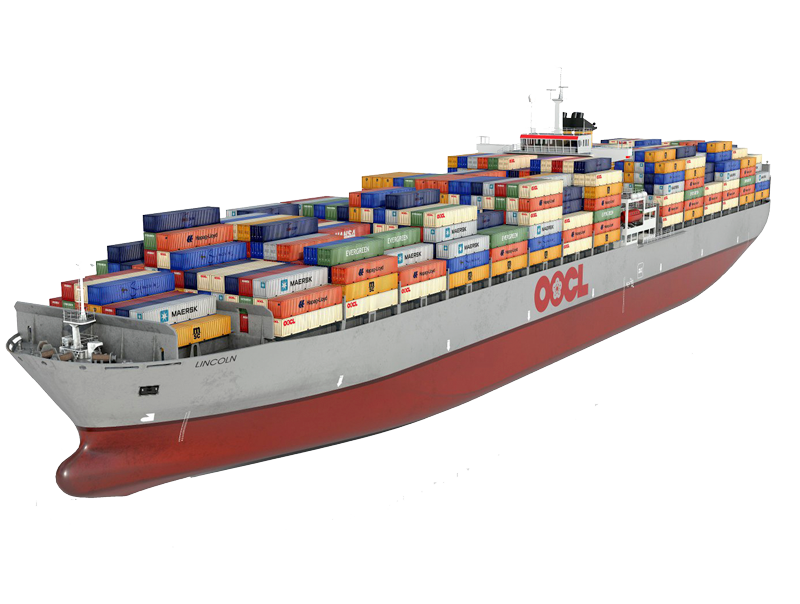
Ocean freight restrictions from UAE
Ocean freight restrictions refer to items that are not allowed to be shipped by sea due to various regulatory, safety, and security reasons. These restrictions vary from country to country and from carrier to carrier, and it is important to understand the restrictions that apply to your shipment. Here is a list of common ocean freight restrictions from UAE:
Dangerous Goods
Dangerous goods, such as chemicals, explosives, and hazardous waste, are subject to strict regulations and restrictions. Shippers must comply with the International Maritime Dangerous Goods (IMDG) code and provide detailed documentation, including the shipper’s declaration, to the carrier.
Prohibited goods
Prohibited goods are items that are not allowed to be imported or exported, such as illegal drugs, counterfeit goods, and items with fake trademarks.
Restricted goods
Restricted goods are items that are subject to specific regulations and restrictions, such as restricted chemicals, restricted weapons, and restricted wildlife products.
Food and Perishables
Food and perishable goods are subject to specific regulations and restrictions, and may require special packaging and documentation.
Live Animals
The shipment of live animals is subject to specific regulations and restrictions, and may require special documentation and approvals.
Personal Effects
Personal effects, such as clothing and household items, are subject to restrictions and may require special documentation and approvals.
Lithium Batteries
The shipment of lithium batteries is subject to specific regulations and restrictions, and may require special packaging and documentation.
It is important to understand the ocean freight restrictions that apply to your shipment and to comply with the applicable regulations and restrictions. Failure to comply with the restrictions can result in fines, delays, and the seizure of goods. In addition, shippers should consult with the carrier and relevant authorities before shipping to ensure compliance with the applicable restrictions.
What Are Common Sea Freight Costs for Shipping from UAE?
Sea freight costs refer to the expenses incurred for shipping goods by sea from UAE to another country. The following are the common sea freight costs for shipping from UAE:
Freight Charges
The freight charges are the cost of transporting the goods from the port of origin to the port of destination. This includes the cost of the container, handling, and loading and unloading the goods.
Terminal Handling Charges (THC)
Terminal handling charges are fees levied by the terminal operator for handling and processing the shipment at the port of origin and destination.
Documentation Fees
Documentation fees are charges for producing and processing the necessary shipping documentation, such as bills of lading, packing lists, and certificates of origin.
Customs Clearance Fees
Customs clearance fees are charges for clearing the goods through customs at the port of origin and destination. This includes fees for filing the necessary customs declarations, paying duties and taxes, and obtaining necessary approvals and permits.
Insurance
Insurance is an optional cost that provides protection against loss or damage to the goods during transit.
Packaging Costs
Packaging costs are expenses for packing and securing the goods for transport. This may include costs for crates, pallets, and other materials used for packaging.
Other Costs
Other costs may include storage fees, loading and unloading charges, and miscellaneous expenses such as inspection fees and terminal security charges.
It is important to consider all of these costs when estimating the cost of shipping goods by sea from UAE. The costs will vary depending on the type of goods being shipped, the distance, the mode of transportation, and other factors. A freight forwarder or shipping agent can provide a detailed estimate of the sea freight costs for your shipment.
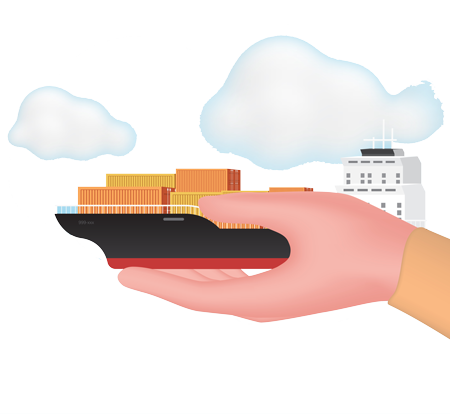
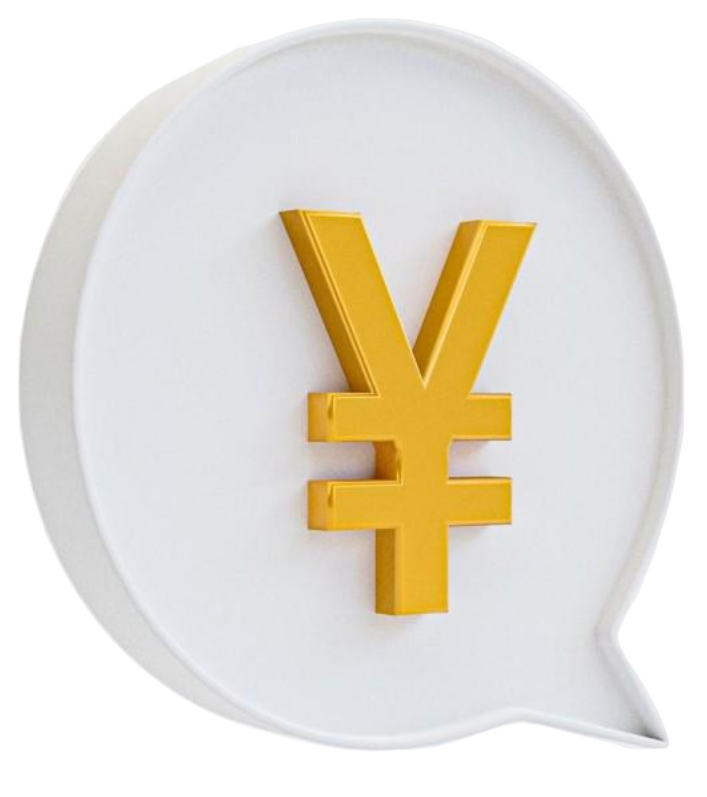
Sea freight Costs & charges from UAE
Sea freight costs from the United Arab Emirates (UAE) can vary depending on a number of factors, including the origin and destination of the shipment, the type and size of the cargo, the shipping company and the service level required. The most common type of sea freight service from the UAE is full container load (FCL) shipping, which involves loading a container with goods from a single consignor. The cost of FCL shipping will depend on the size of the container, the distance to the destination, the demand for shipping space, and the level of service required.
In addition to the cost of sea freight, there are also various charges and fees associated with shipping goods from the UAE by sea. These may include terminal handling charges, which cover the cost of loading and unloading containers at the port; port charges, which cover the cost of using the port facilities; and customs duties and taxes, which may be levied by the authorities at the destination port. There may also be additional charges for special handling requirements, such as refrigerated containers for perishable goods, or for insurance to cover the value of the goods during transit. It is important to factor these additional costs into the total cost of shipping goods by sea from the UAE, in order to obtain an accurate estimate of the total cost of the shipment.
Transit time for Sea freight from UAE
Transit time is an important factor to consider when shipping goods by sea from the UAE. It refers to the amount of time it takes for the shipment to reach its destination, from the time it is loaded onto the vessel until it is unloaded at the destination port. Transit time can vary greatly depending on several factors, including the origin and destination of the shipment, the shipping company and service level selected, the routing of the vessel, and the demand for shipping space.
In general, transit time for sea freight from the UAE to destinations in Asia can take anywhere from 5 to 15 days, depending on the specific destination. For destinations in Europe, the transit time can range from 15 to 25 days, while destinations in the Americas can take anywhere from 20 to 40 days. These are rough estimates, and the actual transit time will depend on the specific shipping company and service level selected, as well as any other factors that may impact the shipping journey.
Here is an estimated list of transit times for sea shipping from the UAE to 20 different countries around the world:
- United States: 30-40 days
- United Kingdom: 20-30 days
- China: 10-20 days
- Australia: 20-30 days
- Japan: 10-15 days
- South Korea: 10-15 days
- India: 10-20 days
- Germany: 20-30 days
- France: 20-30 days
- Canada: 25-35 days
- Brazil: 30-40 days
- Italy: 20-30 days
- Spain: 20-30 days
- Russia: 20-30 days
- Netherlands: 20-30 days
- Belgium: 20-30 days
- Turkey: 15-25 days
- Saudi Arabia: 5-10 days
- South Africa: 20-30 days
- Singapore: 10-15 days
It is important to note that these are rough estimates and that transit time can be influenced by various factors, such as the shipping company, service level selected, demand for shipping space, and unforeseen events such as weather or equipment failures.

Conclusion
In conclusion, shipping goods by sea from the UAE involves a number of costs and factors that need to be taken into consideration. Understanding the various costs and charges associated with sea freight, as well as the transit time required for the shipment to reach its destination, are crucial for ensuring a smooth and cost-effective shipping process.
Transit time for sea freight from the UAE to various destinations around the world can vary greatly, ranging from 5 days to 40 days, depending on several factors such as the destination, shipping company, and service level selected. Estimating the transit time for a shipment is important for planning and scheduling, and helps to ensure that goods are delivered on time and in good condition.
The cost of sea freight from the UAE can also vary, depending on factors such as the origin and destination of the shipment, the type and size of the cargo, the shipping company and service level required, and the additional charges and fees associated with the shipment. It is important to consider all of these factors when estimating the total cost of shipping goods by sea from the UAE, in order to obtain an accurate and comprehensive estimate.
Overall, shipping goods by sea from the UAE requires careful planning and consideration of various factors. Understanding the costs, charges, and transit time involved in the shipping process is essential for ensuring a successful and cost-effective shipment. By taking the time to consider all of these factors, companies and individuals can ensure that their shipments are delivered safely, securely, and on time.





